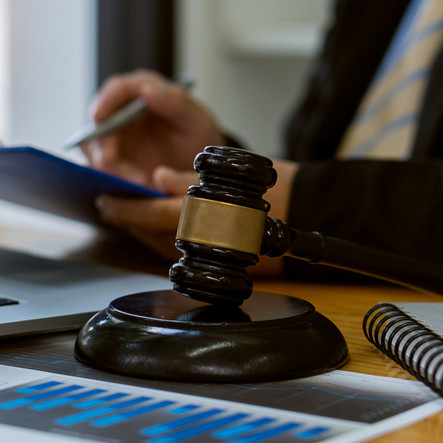Circumstantial evidence generally refers to evidence that doesn’t directly prove the truth of an assertion but allows for an inference of its truth.
If you have been injured in a car accident, you may be wondering what type of evidence is needed to win your case. In general, there are two types of evidence: direct and circumstantial. Direct evidence is pretty self-explanatory; it’s evidence that directly proves that the defendant was responsible for the accident. Circumstantial evidence, on the other hand, is not as straightforward. This article will answer five frequently asked questions about circumstantial evidence.
What Is Circumstantial Evidence?
Circumstantial evidence refers to evidence that doesn’t directly prove the truth of an assertion but allows for an inference of its truth. In an auto accident lawsuit, this type of evidence can be used to prove liability. For example, if the defendant was speeding at the time of the crash, that fact may be used to infer that the defendant was negligent. Similarly, if the plaintiff was not wearing a seatbelt at the time of the accident, that fact could possibly be used to infer that the plaintiff was contributorily negligent.
However, it’s important to keep in mind that circumstantial evidence is not always conclusive. For this reason, it’s often best to combine circumstantial evidence with other types of evidence, such as eyewitness testimony or expert opinion.
How Does Circumstantial Evidence Differ From Direct Evidence?
Direct evidence is typically defined as firsthand testimony or physical evidence that directly proves a particular fact. In other words, it directly proves that the defendant was responsible for the accident. Circumstantial evidence is not as straightforward; it supports the conclusion that the defendant was responsible for the accident, but generally does not prove it directly.
How Is Circumstantial Evidence Different From Hearsay?
Hearsay can be defined as “a statement made by a witness who did not see or hear the event in question”. In other words, it’s second-hand information. Circumstantial evidence is not second-hand information; it’s evidence that supports a conclusion indirectly.
What Are the Benefits of Using Circumstantial Evidence?
There are many benefits of using circumstantial evidence. Some of the most common benefits include:
- It can be used to support a conclusion when there is no direct evidence available
- It can be used to corroborate direct evidence
- It can be used to fill in the gaps when the direct evidence is incomplete
What Are the Drawbacks of Using Circumstantial Evidence?
One of the major drawbacks of circumstantial evidence is that it’s often open to interpretation. What one person may see as a clear indication of fault, another may see as simply an unfortunate coincidence. This can make it difficult for jurors to reach a unanimous verdict and lead to lengthy and expensive court battles.
Another drawback of circumstantial evidence is that it can be easily manipulated, further complicating matters.
Another disadvantage of relying on circumstantial evidence is that it can give the impression that the plaintiff does not have a strong case. If the jury feels that the plaintiff is trying to hide behind technicalities, they may be less likely to award damages.
There you have it – a brief overview of circumstantial evidence in car accident lawsuits. While this type of evidence can be useful, it’s important to consider its limitations. If you have been involved in a car accident, it’s best to speak with an experienced auto injury attorney who can help you navigate the legal process, collect strong evidence and build a solid case.
St. Louis Auto Accident Lawyer
If you have been involved in an auto accident and are looking for an experienced St. Louis car accident attorney, contact The Hoffman Law Firm today. Our team has over 20 years of experience and is ready to help St. Louis car accident victims get the compensation they deserve. Contact us today for a free consultation.
FREE Consultation
Speak with an experienced attorney 24/7

